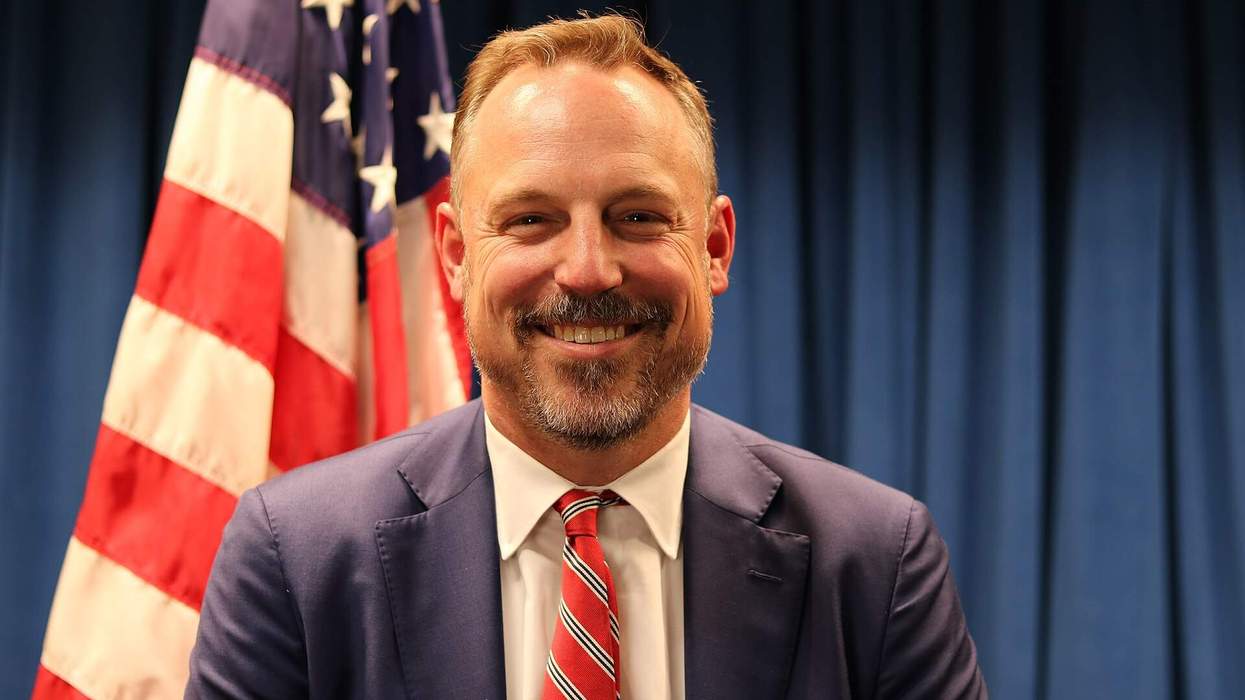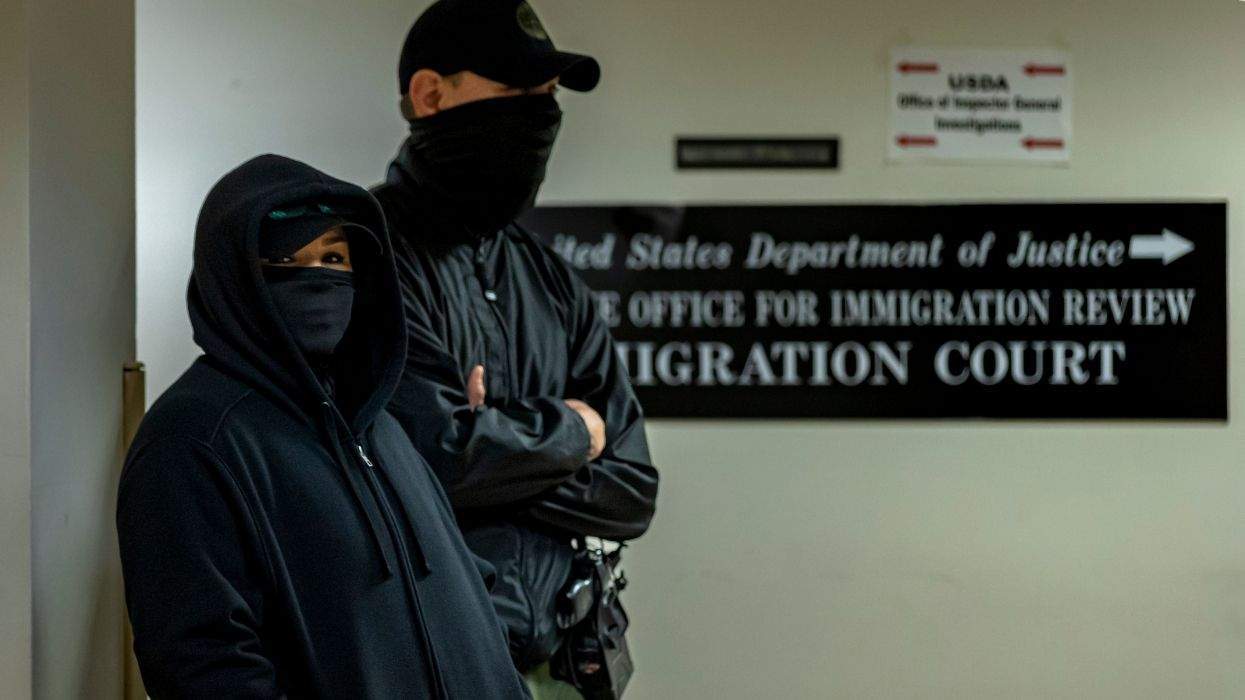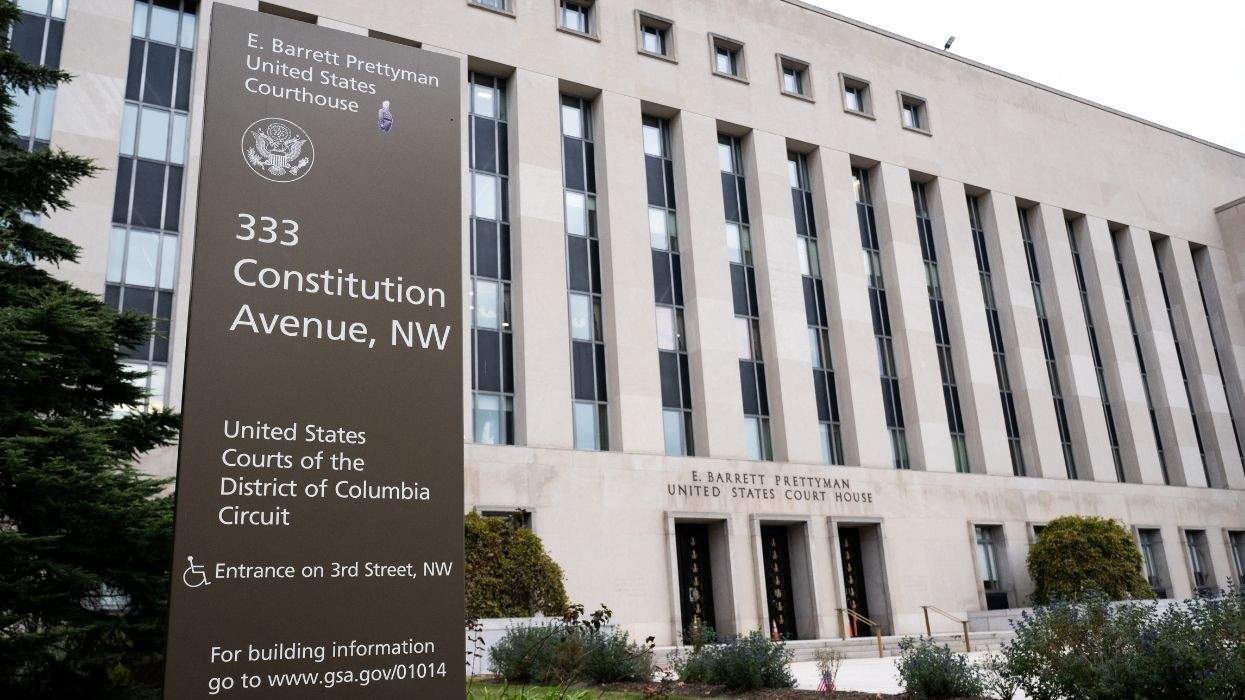In November of 2012, Aimee Stephens stood in her backyard holding a gun to her chest. She was living two lives -- as a man at work, as a woman at home and in other venues outside her workplace. The double life hadn't been so hard for her when she began living it a few years earlier, but by this time it had become "downright impossible."
Standing there, however, "I chose life," Stephens, whose employment discrimination case will go before the U.S. Supreme Court next week, said at a press conference Monday with the American Civil Liberties Union of Michigan, which has assisted her in her case.
"I realized that I liked me too much to just disappear or go away," Stephens said. That led her to decide to come out as transgender in her job as a funeral director -- a decision that has now set up the first case on trans rights the high court will ever hear.
Over the next few months, Stephens wrote and rewrote a letter to her bosses at R.G. & G.R. Harris Funeral Homes in suburban Detroit, where she had worked for six years. She finally handed it over in July 2013, saying she would begin presenting at work as the woman she knew herself to be.
"I realize some of you may have trouble understanding this," the letter read in part. "In truth, I have had to live with it every day of my life and even I do not fully understand it myself. As distressing as this is sure to be to my friends and some of my family, I need to do this for myself and for my own peace of mind, and to end the agony in my soul."
Her bosses "weren't happy with it," she recalled at the press conference. Two weeks later, she was fired. She was offered three months' salary as severance pay if she agreed not to discuss the matter. But she soon realized, she said, "Three months' salary really isn't a lot of money to keep my mouth shut for the rest of my life. ... I turned down the severance package and I decided to fight."
Stephens, who had begun presenting as female in her 40s (she's now 58), had the full support of her family, including her wife, Donna (they were married when Stephens was still presenting as male, although she had known herself to be female since childhood). "When I was fired, it made me mad, to say the least ... that's when it finally hit home that we weren't treated the same as everybody else and it's time that somebody stood up and said enough is enough," Stephens said.
She contacted the Michigan ACLU, which helped her file a complaint with the Equal Employment Opportunity Commission. In 2014 the EEOC, a quasi-independent federal agency, concluded that the funeral home company had committed illegal discrimination against Stephens and sued the company on her behalf.
The EEOC's argument was that R.G. & G.R. Harris had discriminated against Stephens because of her sex, something forbidden by Title VII of the U.S. Civil Rights Act of 1964. During President Barack Obama's administration, the EEOC and several other federal agencies held that sex discrimination included discrimination based on sexual orientation and gender identity. Some federal courts have agreed with that interpretation; others have not. Now the Supreme Court will rule on the matter.
In 2016, Judge Sean F. Cox noted that his court, the U.S. District Court for the Eastern District of Michigan, had previously rejected the argument that Title VII covered sexual orientation and gender identity, but he recognized that other courts had ruled differently on the issue, so he did not rule that Title VII could not apply. But he also ruled that the owners of the funeral home company had a legal right under the federal Religious Freedom Restoration Act to act according to their religious beliefs about the immutability of gender.
Majority owner Thomas Rost, Cox wrote, "has a sincere religious belief that it would be violating God's commands if he were to permit an employee who was born a biological male to dress in a traditionally female skirt-suit at one of his funeral homes because doing so would support the idea that sex is a changeable social construct rather than an immutable God-given gift."
In 2018, however, the U.S. Court of Appeals for the Sixth Circuit ruled that not only is discrimination against trans people sex discrimination, but the federal RFRA does not provide employers an exemption from the Civil Rights Act in this case. It said the district court should reconsider the case in light of those findings. Instead, the Alliance Defending Freedom, the anti-LGBTQ group representing the funeral home company, asked the Supreme Court to hear the case, and the high court accepted. It will hear oral arguments in this case and two others October 8. The others involve the firing of gay men, and they and Stephens's case all turn on whether Title VII applies to sexual orientation and gender identity.
By the time Stephens and the EEOC appealed, the ACLU of Michigan and the national ACLU had intervened in the case, taking a larger role in representing Stephens. The civil liberties group feared the federal agency would not represent Stephens adequately after Donald Trump became president and his administration rolled back many LGBTQ protections put in place during Obama's tenure.
"We're cautiously optimistic that the court's going to do the right thing," Jay Kaplan, staff attorney with the ACLU of Michigan's LGBT Project, said in the press conference. The Supreme Court has become more conservative in the past couple of years, but Stephens's lawyers have a conservative argument to make, he said. "Aimee was fired because of sex, the very definition of what it means to be transgender," Kaplan said.
Stephens said that being fired and fighting back have taken a toll on her, both financially and health-wise. At the end of 2014, her kidneys failed, and she now undergoes dialysis three days a week, with each session lasting several hours. But she's committed to the fight.
"If I'm going to commit to this, we'll be in it to the end, and hopefully, if for some reason I don't live long enough to see the end, somebody will keep going," she said.
Video of the full press conference is below.















Charlie Kirk DID say stoning gay people was the 'perfect law' — and these other heinous quotes
These are some of his worst comments about LGBTQ+ people made by Charlie Kirk.